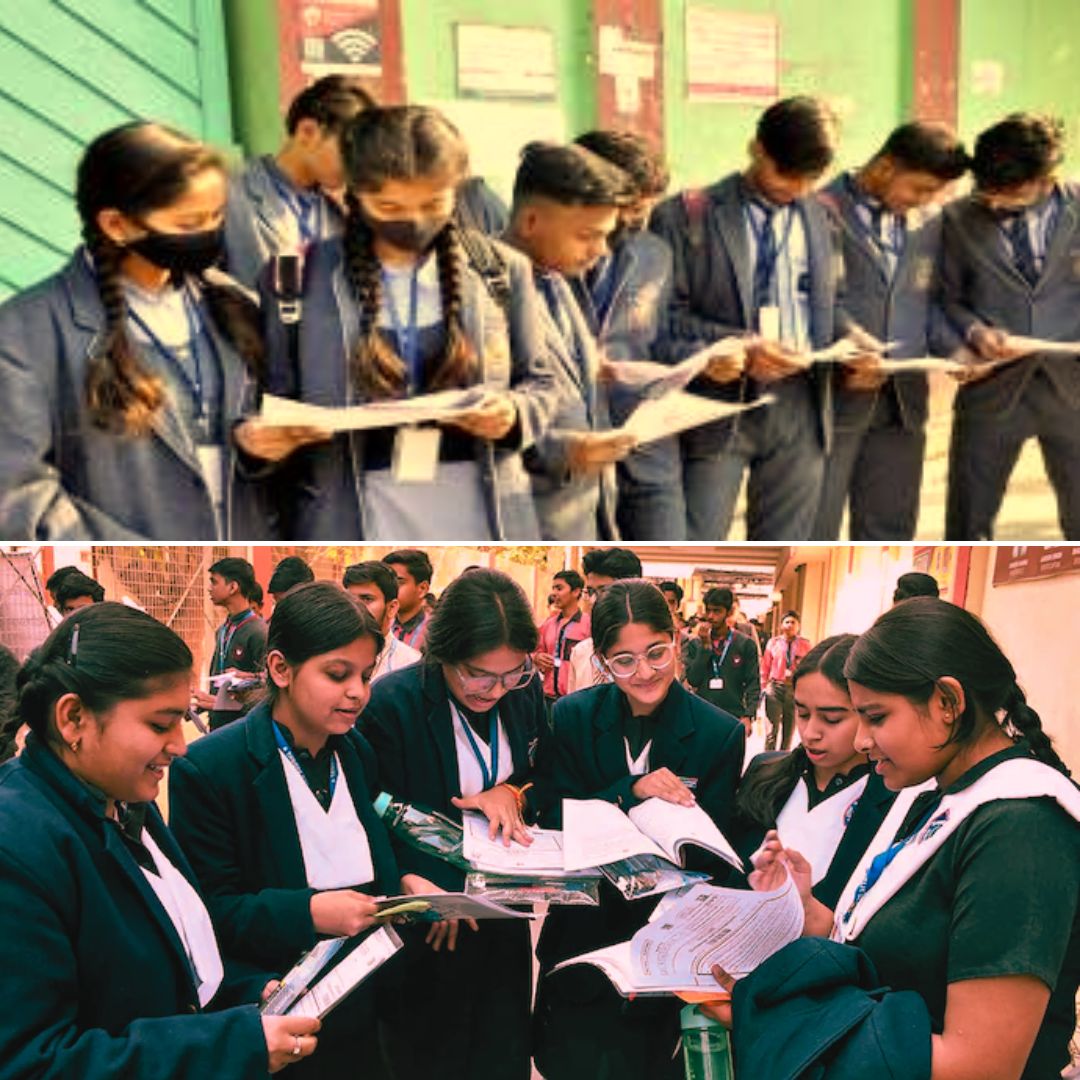The Central Board of Secondary Education (CBSE) has released a comprehensive revised syllabus for Classes 10 and 12 for the 2025-26 academic year, introducing significant changes aimed at enhancing academic flexibility and skill-based learning. Class 10 students now have the option to take board exams twice a year—in February and April—while Class 12 exams will continue to be held once annually, starting February 17, 2026.
A new 9-point grading system will be implemented, and students are required to select skill-based subjects such as Computer Applications or Artificial Intelligence. Officials assert these reforms are designed to align education with industry needs and improve student outcomes.
Enhancing Learning: Key Changes in CBSE’s Curriculum
The updated CBSE syllabus introduces several significant reforms for both Classes 10 and 12. Below is a detailed summary of the key changes:
For Class 10:
- Two Board Exams Annually:
- Students will now have the option to take board exams twice a year—once in February and again in April.
- This change is aimed at reducing the pressure on students by allowing them multiple opportunities to demonstrate their understanding of the material throughout the academic year.
- Mandatory Skill-Based Subjects:
- As part of the new curriculum, students must choose one skill-based elective from options such as Computer Applications, Information Technology, or Artificial Intelligence.
- This requirement is designed to encourage students to develop practical skills that are increasingly relevant in today’s job market.
- Flexibility in Core Subjects:
- In a significant shift from traditional assessment methods, if a student fails in a core subject (for example, Science or Mathematics), they can substitute that subject with a passed skill-based elective during final result calculations.
- This flexibility aims to reduce anxiety associated with high-stakes examinations and promote a more rounded educational experience.
- Revised Grading System:
- A new 9-point grading system will be implemented to ensure fair assessment across different subjects.
- This system converts numerical marks into grades across nine levels, providing a more nuanced evaluation of student performance and reducing the emphasis on absolute scores.
- Language Subject Options:
- Students must select either English or Hindi as one of their language subjects, ensuring that they maintain proficiency in one of the country’s primary languages while also having the option to study another.
For Class 12:
- Four New Vocational Electives:
- The syllabus introduces four new vocational electives: Land Transportation Associate, Electronics and Hardware, Physical Activity Trainer, and Design Thinking.
- These subjects are designed to equip students with specific skills that can enhance their employability and prepare them for various career paths.
- Annual Exam Schedule:
- Class 12 exams will continue to be held once a year, maintaining the traditional structure but with an updated focus on skill application and understanding rather than rote memorisation.
- The next examination session is scheduled to commence on February 17, 2026.
- Focus on Skill Development:
- The curriculum places greater emphasis on practical applications and industry-relevant competencies. This shift is intended to prepare students not only for higher education but also for immediate entry into the workforce, aligning educational outcomes with real-world demands.
CBSE Chairperson Nidhi Chhibber emphasised that these updates aim to foster a more practical understanding of subjects while preparing students for future challenges. She stated, “Our goal is to create an education system that not only imparts knowledge but also equips students with the skills necessary for success in an ever-evolving global landscape.”
Context: Responding to Educational Demands
These reforms come in response to an increasing demand for an education system that equips students with relevant skills for the modern workforce. Stakeholders—including educators, parents, and industry leaders—have long advocated for changes that move beyond traditional rote learning towards competency-based assessments that focus on critical thinking and problem-solving abilities.
The introduction of competency-based assessments marks a significant shift in educational philosophy, focusing instead on students’ ability to apply knowledge in real-world scenarios. The two-exam format for Class 10 is intended not only to alleviate pressure but also to encourage continuous learning throughout the year. Furthermore, the revised grading criteria aim to ensure a fair assessment process by converting marks into grades across nine levels.
The Logical Indian’s Perspective
CBSE’s latest syllabus reforms represent a positive step towards modernising India’s educational framework by prioritising skill development and reducing exam-related stress. By integrating vocational training into mainstream academics, the board is not only fostering inclusivity but also preparing students for diverse career paths ahead.
However, while these changes are promising, their success will depend on effective implementation within schools and adequate support systems for teachers and students alike. It is crucial that educators receive proper training on how to deliver this new curriculum effectively and that schools have the resources necessary to support these initiatives.
As we embrace these changes in education, it raises important questions about our priorities as a society: How do we balance academic rigor with practical skills? Are we adequately preparing our youth for the challenges of tomorrow? We invite you to share your thoughts in the comments below! What do you think about these changes? Will they genuinely enhance learning experiences for students? Let’s engage in this important dialogue together!










